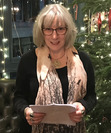Paula R.C. Readman's Blog, page 55
January 14, 2021
Facebook slapped my wrist.
Yesterday, I got banned from posting my blog chats across Facebook. I had signed up to quite a few Facebook sites where you could share you blog posts and market your books. I followed the guidelines of the groups. I even commented on some of them, but as I was busy editing, I didn’t spend a great deal of time on them.
Normally, I shared my tearoom chats in the early morning and only post one a day. Yesterday, I decided to write a post about editing and what I read on a couple of posts in one of new groups I had joined. I share this on several different groups which allows blog posts and authors’ comments.
 Join us for tearoom chats
Join us for tearoom chats 


I didn’t class myself as spamming, but Facebook has and now I’ve been blocked until late tomorrow from posting, sharing or commenting on any other groups but my own two groups and my personal page. I’ve deleted membership of quite a few of the groups and will be very careful in the future about sharing or marketing on Facebook.
It’s annoying as the guidelines for the groups I had selected allows you to promote your books as long as you don’t spam. I didn’t think share one post a day was classed as spamming.
I’m going to focus mainly on my writing, rather than trying to market my books through Facebook sites. I’m not even sure whether you do find many readers on their sites. I did like sharing my tearoom chats though as this wasn’t really marketing more like an invite to join me in a conversation.
I’ve finally finished the edits on my fourth book and are now working on a short story. On the first of February, I begin working on my follow on novel to The Funeral Birds.
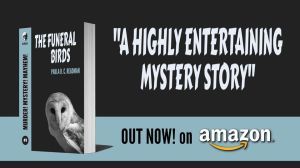
Clubhouse Guest’s Chat: Villimey Sigurbjörnsdóttir
Welcome to Clubhouse Chat page. Those of you who are not a member won’t be aware that the location of the Clubhouse is shrouded in mystery. The only way to visit it is via membership or an invite to the tearoom. Every few days, I’ll be sharing a conversation with all sorts of writers and authors at different levels of their writing careers. Over tea and cakes, or maybe a glass of something stronger, I shall be chatting with my guest about their work in progress, or latest book release.
 Photo by ROMAN ODINTSOV on Pexels.com
Photo by ROMAN ODINTSOV on Pexels.comToday, I’m chatting to the horror writer, Villimey Sigurbjörnsdóttir. Villimey, like myself, is one of the writers featured in the Women of Horror Anthology, Vol 3 The One that Got Away published by Kandisha Press
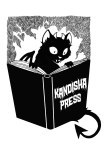
Welcome to the tearoom, Villimey. My first question to all my guests is what would you like to drink?
Thank you for your invite to the tearoom, Paula. Please could I have a matcha latte, thank you.
Now we have our drinks let me start by asking you when you first began your writing journey what drew you to your chosen genre?
I’ve been fascinated by vampires since I was introduced to Bram Stoker’s Dracula (both the movie and the book) when I was just a tomboy girl, imitating Dennis the Menace. There’s just something interesting and yet horrifying to only live on blood and having to resort to murder. The vampire lore is also immense and it’s so much fun to peruse through all of them. As for horror, my older brother introduced me to it inadvertently. He was supposed to be babysitting me at the age of 7 and he and his friends were watching Aliens. He failed to notice little rebellious me behind the sofa, catching the scene when the xenomorph bursts through the chest. It traumatized me but thrilled me at the same time.
Which writing elements do you think is your strongest points, and what would you like to do better?
I think writing tension and twists are my strongest points but I’d love to learn more patience and not being such an underwriter.
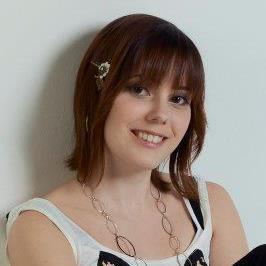 Villimey Sigurbjörnsdóttir
Villimey Sigurbjörnsdóttir
Tell us a little about latest writing project. Is it a new idea, or one you have been mulling over for some time?
I’ve currently got two writing projects. The first one being book 4 of my vampire horror series. That one has been mulling in my head for about 3 months now and I’m still working out some of the ideas, but I’m close to a solid plot! The other project is a short story that entered my mind in my dream a few nights ago, about a malicious spirit in Japanese folklore. Can’t wait to write that one!
How many unfinished projects do you have on your computer?
None, actually. My OCD doesn’t like for me to have any unfinished projects when it comes to writing. Drawings, however…..oh, boy, I’ve got too many.

Do you write a synopsis first, write the first chapter or do you let the characters lead you?
I actually outline each chapter for a novel, that way I’ve got a nice skeletal structure and it helps me remember the core points of the story. As for short stories, I outline the basic ideas before I get started.
Were any of your characters inspired by real people?
Leia and Sophie, the two MCs from my vampire horror series, actually contain a part of myself. Leia is the shy, anxious version of myself while Sophie is the snarky bitch version of myself.
Is there anything about you your readers might be surprised to find out?
Probably that I’m from Iceland.

What is your work schedule like when you’re writing?
I work full-time so I try to squeeze in some writing either in the morning or after dinner. I write everything by hand in my notebooks which is a lot of fun and doesn’t distract me as much as writing on a laptop would.
Do you set yourself a daily word count?
Not really. That would just make me anxious. I try to write a little bit every day but if I’m feeling drained after work, I don’t write. It’s not like my stories are going anywhere.

How do you select the names of your characters? Do you know everything about them before you start writing their story?
Usually they’re just random names. I think of one and see if I still like it after a couple of days. The characters usually pop into my head fully dressed, with full personalities and backstories. I sometimes need to tweak their backstories a bit so they’ll fit into the story but most of the times, they’re ready-made and kicking.
I hope these answers are sufficient. Let me know if I need to add more.
Thank you so much for joining me in the tearoom, Villimey. To find out more about Villimey’s writing please click on the links below:
Author website/blog: www.villimeymistauthor.com
Instagram: www.instagram.com/fangs.and.light Twitter: www.twitter.com/VillimeyS
Nocturnal Blood on Amazon: https://www.amazon.com/Nocturnal-Blood-Villimey-Mist-ebook/dp/B07L1WHMYZ
Nocturnal Farm on Amazon:
https://www.amazon.com/gp/product/B083RFKPT8?notRedirectToSDP=1&ref_=dbs_mng_calw_1&storeType=ebooks
If you want to find out more about Clubhouse Members’ Books, don’t forget to check out the Clubhouse Bookshops, too.
January 13, 2021
Shh 🤫 The Secret To Good Writing
I know I’ve posted about this before, but as my followers have grown over the last year I thought I would post about it again. Yesterday, on one of the Facebook sites where I post my tearoom chats, I read a question by a young writer.
They were asking about the number of words you should write in a day? This saddens me. Another question that often pops up across the internet is about what should be the word count for your novel? I always take a deep breath when I see these types of questions. Especially, when a competition breaks out in the comment box between the writers to who has the biggest novel. 
Why, you might be asking do these sort of questions make me sad or sigh heavily. Think about for a moment. Ask yourself this, what is the writer focusing on? What is important to them?
Size isn’t everything.
Ernest Hemingway was asked why he rewrote the ending of A Farewell to Arms 39 times. His reply was to get the words right. Hemingway wasn’t worried about how long his novel was, or how many words he wrote in the day. His focus was on telling the story and making sure he used the best words to do it.
What does this tell us? Where should our focus be? Writing is only half of the job we do when telling our stories. Yes, we must get our ideas down, and once we’ve done that then we need to work our magic. This is the point at which we need to clear out all weak or unnecessary words. I promise you, you will find them.
Sentences that start with: It was, I was etc. By losing the word was you can show through evidence, and action by tightening your sentences. This will help you increase the pace of your story and tighter the tension that the reader will experience. This is what will keep them turning the pages, as they will want to know what happens next in your story.
Seeking the Dark was the first novel I wrote. I had no idea what I was doing. I didn’t know how to start a chapter, or where was the best place to end it. The problem is you can’t know where to cut your story until you written it out in full. There’s a difference between the idea you have in your head and the final draft.
If I learnt anything on my writing journey it is the secret to good writing. And what’s that? It doesn’t start with just an idea, it isn’t even in the first draft. The secret is found in the editing and the amount of time you’re willing to invest in creating your own magic.
This is the difference between your work being accepted or rejected. Skipping editing or just giving it a light read through before sending it off isn’t always enough. The more time you invest in editing, means less time the publisher or editor will need to spend on your work. This means they are more than likely to accept it, if it is what they are looking for.
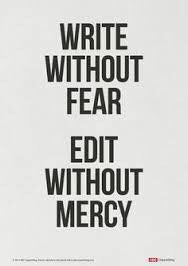
So in answer to the two questions about how many words should you write in a day, and how long should your novel be, my answer is the same. It’s up to you. Write as much as you want, but edit like there’s no tomorrow.
Writing isn’t a competition about how big someone’s novel is or how many words they write in a day. It’s all about the quality of their writing. It’s all about how much time you are willing to invest in editing.
Getting the Words Right: How to Revise, Edit & Rewrite by Theodore A.Rees Cheney is the best book I’ve read that explains how the edit and improve your writing.
 This is my old copy, from 1983, but I’m sure it has been updated.
This is my old copy, from 1983, but I’m sure it has been updated.
January 12, 2021
Clubhouse Guest’s Chat: Demi-Louise Blackburn
Welcome to Clubhouse Chat page. Those of you who are not a member won’t be aware that the location of the Clubhouse is shrouded in mystery. The only way to visit it is via membership or an invite to the tearoom. Every few days, I’ll be sharing a conversation with all sorts of writers and authors at different levels of their writing careers. Over tea and cakes, or maybe a glass of something stronger, I shall be chatting with my guest about their work in progress, or latest book release.

Today, I’m chatting to the horror writer, Demi-Louise Blackburn. Demi-Louise, like myself, is one of the writers featured in the Women of Horror Anthology, Vol 3, The One that Got Away published by Kandisha Press
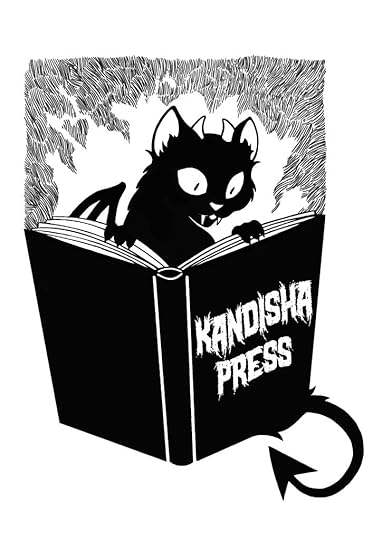
Please may I welcome you, Demi-Louise to the tearoom. As always my first question to my guests is what would you like to drink?
Thank you for my invite to your lovely tearoom, Paula. My favorite beverage is black coffee, but those cakes look lovely too.
Let’s order some cakes to go with our refreshments. While we are waiting for them to arrive, let me start by asking you when you first begun your writing journey what drew you to your chosen genre?
I think my love for the horror genre came to me quite slowly compared to others. I started out reading and writing straight literary pieces because that’s what we were made to read during my schooling years. Luckily, by college we were given freedom to explore and request our own authors to use as inspiration for writing projects. I picked Poe, and I think from there my love for the genre spiralled quite a bit.
Plus, I’m quite a placid person in my day-to-day life, so, I think I partly love horror and darker fiction because the emotions it aims to manipulate are the few emotions that really get a response out of me. There’s something very interesting to me about trying to capture that and pass it onto someone else when fear is so personal.
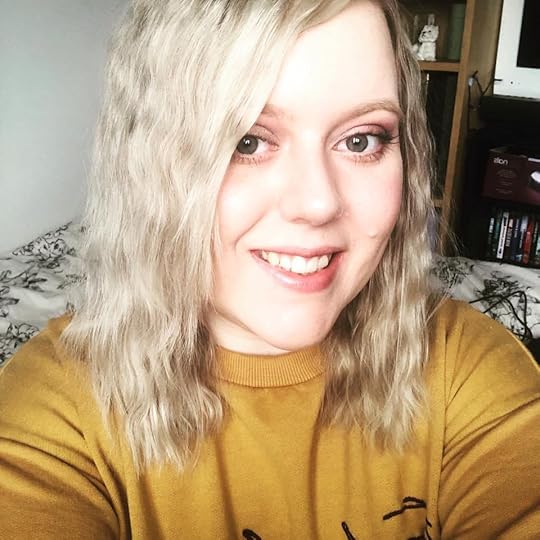 Demi-Louise Blackburn
Demi-Louise Blackburn
Which writing elements do you think is your strongest points, and what would you like to do better?
I like to think I’m able to make my writing sing a little, even in mundane parts of the plot, whether it be in the sense that the writing is satisfying to read aloud, or in terms of being able to capture a single picture, feeling, or thought, in a way that really hits a few readers close to home.
However, in turn, I think that’s also my weak spot as well! I get so wrapped up in making parts of the prose beautiful that it can sometimes drown out small actions. For example, on one piece of work I sent for feedback, hardly anyone noticed that my character had moved from one room to the next and got confused, all because I’d gone crazy on theprose surrounding it!
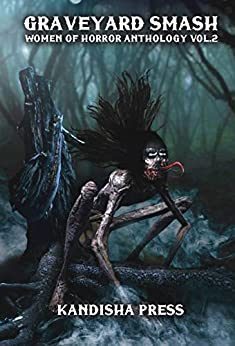 Demi Louise‘s story
Smash and Grab
included with in.
Demi Louise‘s story
Smash and Grab
included with in. Tell us a little about latest writing project. Is it a new idea, or one you have been mulling over for some time?
At the minute, I’m indulging myself a little and dipping into a short project that’s well-known territory for most horror authors, but one I’ve actually never had a crack at – a haunted house tale. Though the story is a new project, the memories that encouraged me to write it very much aren’t.
After my grandfather passed away, we moved into his old house and lived there for quite a few years. I’m a fairly sceptical person by nature, so even though a lot of bizarre things happened at that house, looking back I shrugged them off as being young and imagining things, or put it all down to sleep paralysis which I started suffering from rather badly at the time.
I’m not sure why it’s taken me so long to start writing about it, honestly. You’d think I’d have jumped at the chance to use that experience as fuel for a story. But, better late than never!
How many unfinished projects do you have on your computer?
If you’d have asked me this last November, I’d have probably refused to tell you! But as it stands, at the moment I’ve got a respectable five or six unfinished projects…I mean, it could be worse!
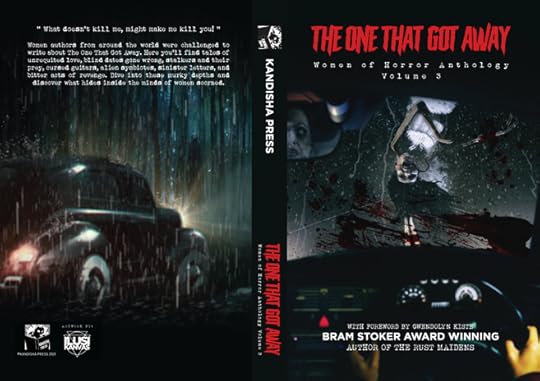
Do you write a synopsis first, write the first chapter or do you let the characters lead you?
Whenever I start a project, be it a chaptered piece or a short story, I always give myself a rough outline before I get going, but it is very, very rough. I’ve discovered lately I do much better if I just let go of the reigns and write the story however it comes to me. As I go along, I’ll write myself a summary at the end of the writing day, so when I come back for revisions, I’m able to glance at the plot itself and spot any structural problems straight away.
When reading your work through do you ever find that your daily mood swings are reflected in your writing?
Oh, absolutely. I can always tell if I’ve been in a bad mood and trying to write through it. If I’ve been a bit blue my pacing slows down to a snail’s pace, and you can see in the writing I’ve been overthinking things too much and ideas get muddled. If I’m angry or annoyed, it’s the entire opposite, everything is rushed and messy, there’s a million typos in there, fragmented sentences, and just a general disregard for writing clean.
Makes the editing process very interesting!
What is your work schedule like when you’re writing?
Hectic.
I would love to sit here and boast about how organised and disciplined I am, but I’m a disgustingly chaotic writer. Some days I’m good and settle down for an evening and write for a solid hour. Other times I cram in writing on my 15-minute breaks from work or rush in a bunch of writing about 5 minutes before I’m due to go to bed. I’m really easily distracted, too.
With the free time I have, I honestly just accept that if I can cram writing in somewhere through the day, it’s good enough. It’d be nice to have a bit more free time to set myself a schedule, though.
I can wish!
How many hours in a day do you write?
I’d say I try my best to get two hours a day but, depending on how busy I am with other stuff, it can sometimes end up a lot less. I try and make up for lost time on weekends when I’m able to, though.
Did you ever consider writing under a pseudonym?
When I first looked into getting some bits and bats published, I honestly didn’t consider a pseudonym at all. I was more than happy to just slap my name on it and call it a day. Plus, I don’t think there’s too many authors around with my name from what I’ve seen, so I’ve been pretty lucky in that regard! I’d maybe consider it if I got invested into another genre or something like that, but can’t really see it happening.
How do you select the names of your characters? Do you know everything about them before you start writing their story?
I’m going to sound so boring…but I google the place my story is set, or an area I think it mimics, and I will search for the most common, bland, everyday names I can. I’d much rather have my character’s sound like they’re someone you’d bump into at a local pub than try and make them stand out. On occasion I do find myself digging around for names with specific connotations, but it’s just something I do very rarely. And I never know everything about my characters. Again, as with my usual writing process, I have a very vague shape in my head of who my characters are, but they only really develop into something solid as I continue writing. My first draft characters and my final draft characters are unrecognisable compared to each other, and definitely go through lots of changes in terms of their backstory.
Thank you for joining me in the tearoom, Demi-Louise. To find out more about Demi-Louise’s writing check out the link below:
Website Link: https://demi-louise.com/
If you want to find out more about Clubhouse Members’ Books, don’t forget to check out the Clubhouse Bookshops, too.
January 11, 2021
Clubhouse Guest’s Chat: Faith Pierce
Welcome to Clubhouse Chat page. Those of you who are not a member won’t be aware that the location of the Clubhouse is shrouded in mystery. The only way to visit it is via membership or an invite to the tearoom. Every few days, I’ll be sharing a conversation with all sorts of writers and authors at different levels of their writing careers. Over tea and cakes, or maybe a glass of something stronger, I shall be chatting with my guest about their work in progress, or latest book release.
 Photo by Eva Elijas on Pexels.com
Photo by Eva Elijas on Pexels.comToday, I’m chatting to the horror writer, Faith Pierce. Like myself she is one of the writers featured in the Women of Horror Anthology, Vol 3 The One that Got Away published by Kandisha Press

Welcome to the tearoom, Faith. My first question to all my guests is, what would you like to drink before we start chatting?
Thank you for the invite, Paula. I have a taste for dark beers like a stout so could I have a glass, please.
Of course, as we have a driver to run you home. Now we have drinks I would like to ask you when you first began your writing journey what drew you to your chosen genre?
When I first began my writing journey, I think horror was one of the last genres I would’ve thought of writing. Not that I disliked horror, but I think I was intimidated by it. I’ve never thought of myself as scary. Then I had this one nightmare that really stuck with me and I started having all these “what if” ideas related to this nightmare. It wouldn’t leave my head and finally I thought, “Okay, I’ll just write this down and call it writing practice.” I discovered that writing about the things that scare or disturb me provides a safe space to explore those fears. If the bad things are happening to my characters, then they’re not happening to me, right?
Now that little nightmare idea is my first finished novel, and it’s under contract with Crystal Lake. I’ve written other horror short stories, my next novel will have horror elements, and these days I read mostly horror. I’ve fallen in love with the genre.
What writing elements do you think are your strongest points, and what would you like to do better?
The technical aspects like spelling and grammar come easily for me. But I’m not a natural storyteller. Like if I try to tell you some funny thing that happened to me yesterday, I’ll probably start in the middle, leave out vital information, and forget the punchline. My approach to writing is similar sometimes in that it comes out very fragmented. Going back through and piecing it into a cohesive story is the most challenging thing for me, and I wish stories came to me in a neat chronological sequence.
I’m also not great at setting, but I haven’t decided yet if that’s something I’m working on or if I’m going to lean into the minimalist thing. I use the same excuse to explain why my house has no decor, but really I’m just lazy about hanging things.
Tell us a little about your latest writing project. Is it a new idea, or one you have been mulling over for some time?
My latest finished short story is going to be published with Cemetery Gates in the spring of 2021. That one is a quiet horror story told in the first person as a confessional. I did end up using a particular scene that I wrote down months ago, that didn’t have a story to go into at the time I wrote it. But otherwise the idea was new, inspired by the call itself.
I’ve also been brainstorming a new book idea that I’m planning to dive into soon. I think it’s going to be a genre mashup of sci-fi, fantasy, and horror.
 Faith Pierce
Faith Pierce
How many unfinished projects do you have on your computer?
If we’re talking projects that I’ve started and not yet shelved, maybe five?
Do you write a synopsis first or write the first chapter?
Neither; I usually start with a scene. It might be a few lines, a character intro, or a dialogue exchange; it might end up being the beginning, but more often than not it’s somewhere in the middle.
What is your work schedule like when you’re writing?
I’m usually an evening writer, but I don’t have set hours for it. I work a normal Monday through Friday, 8 to 5 kind of job. In a perfect evening, I’ll get in a workout, cook dinner, write, and have some relaxation time for reading (or TV or gaming). There are technically enough hours in the day to hit all of those, but I’m not as consistent as I’d like to be. I do have other hobbies like gardening and studying foreign languages, so the hours can run out fast. Like most writers, I have to make sacrifices and give some things up to keep writing as a priority.
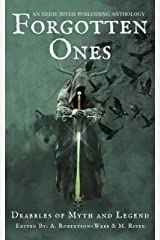
Do you set yourself a daily word count?
If I’m in the middle of a project, I try to keep a writing streak going. Since I work full time, my daily word count goals are modest. I’m happy with 500 words a day.
Did you ever consider writing under a pseudonym?
I really, really did. I decided not to for a number of reasons, but I am a pretty private person and now that I’m starting to have my writing out in the world, I have moments of panic and anxiety about my different worlds colliding. But I’m trying to get more comfortable with owning my writer identity.
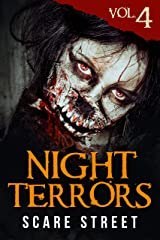
What was your hardest scene to write?
There was a scene with sexual assault in my first attempt at a novel, which is unfinished and indefinitely shelved, and I wrote it with enough detail that it was hard for me to stomach. Which is a low bar, honestly.
How long on average does it take you to write a book or story?
I think I’m too new to have developed a sound average. I initially wrote my book as a short story of about 4,000 words. It was my first short story, and it took a couple months. Then I realized it needed to be much longer and I started rewriting it as a novel in March 2019; I finished it November 2019. I hope that with my next novel I can write the first draft in six months to a year. That’s my goal, but it’ll depend on the book and the research required.

With shorts, I’m getting more comfortable with those and I have written them in one sitting before, but it depends on whether I have the whole story in my head or if I’m figuring it out as I go. Also, it depends on deadlines. I’m a terrible procrastinator. If it’s due tomorrow, I’ll get it done tomorrow.
Thank you for taking time out to join me in the tearoom for a chat, Faith.
If you what to find out more about Faith’s writing and books check the link below:
Amazon page: https://www.amazon.com/author/faithpierce
If you want to find out more about Clubhouse Members’ Books, don’t forget to check out the Clubhouse Bookshops, too.
January 10, 2021
Clubhouse Guest’s Chat: Ellie Douglas
Welcome to Clubhouse Chat page. Those of you who are not a member won’t be aware that the location of the Clubhouse is shrouded in mystery. The only way to visit it is via membership or an invite to the tearoom. Every few days, I’ll be sharing a conversation with all sorts of writers and authors at different levels of their writing careers. Over tea and cakes, or maybe a glass of something stronger, I shall be chatting with my guest about their work in progress, or latest book release.
 Photo by u0130brahim Hakku0131 Uu00e7man on Pexels.com
Photo by u0130brahim Hakku0131 Uu00e7man on Pexels.comToday, I’m chatting to the horror writer, Ellie Douglas. Ellie, like myself, is one of the writers featured in the third volume of Women of Horror Anthology, The One that Got Away published by Kandisha Press
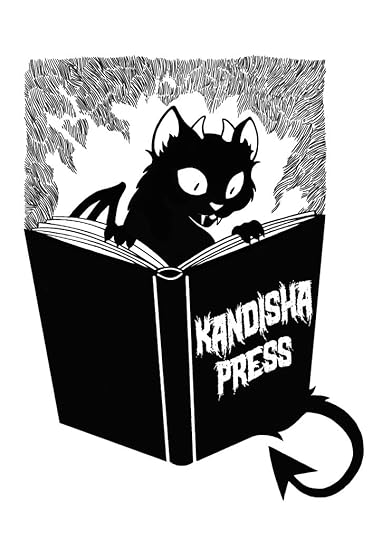
Please may I welcome you, Ellie to the tearoom. As always my first question to my guests is what would you like to drink?
Thank you for the invite, Paula. Oh, please may I have a pina colada, thank you.
Of course, you may.. Now we have our refreshments, let me start by asking you when you first begun your writing journey what drew you to your chosen genre?
I’ve been a horror lover since I was very, very young, it mostly arrived from books and movies. Sparking my love for horror.
What writing elements do you think is your strongest points, and what would you like to do better?
Descriptiveness would be my strongest point. I would like to improve on my grammar.
 Ellie Douglas
Ellie Douglas
How many unfinished projects do you have on your computer?
At the last count I had eight unfinished projects on my computer.
Do you write a synopsis first or write the first chapter or let the characters lead you?
I usually write my synopsis after I finished writing my book. However, my last book I wrote the synopsis first.
When reading your work through do you ever find that your daily mood swings are reflected in your writing?
Yes my moods are often reflected in my writing.
Were any of your characters inspired by real people?
Yes, nearly all the time. I find it a great way to kill someone off that has harmed me in some way, but by doing it in the fictional world I avoid jail,
So close, yet so far away.
I’m starting to get nervous. My writing journey has been a long one. Twenty-two years ago I set myself a challenge. The first short story I wrote was about a woman on a bus late at night traveling home from a bad date. It was told through her inner-thoughts. It was only when the reader learnt that she had no reflection they discovered she was a vampire.
I gave my first effort to my friend Lisa at work to read. Bless her, she read it and said she wanted to know more about the character. I went away and wrote 129k word novel badly. I sent the first twenty pages as a submission to an American publisher, who were kind enough to give feedback. It was then I realised that I didn’t have the skills needed to write the novel I wanted so I focused on learning.
Last year at this same time, I started rewriting and editing that novel. It had been edited and rewritten several times and has had its title changed too. Today, as I sit here writing this blog post, Seeking the Dark has been reduced down to a novel of 74k words, and has a much stronger plot line. I’m just hoping the publisher that has shown an interest in my novel will like it. Fingers crossed 
Clubhouse Guest’s Chat: Rebecca Rowland
Welcome to Clubhouse Chat page. Those of you who are not a member won’t be aware that the location of the Clubhouse is shrouded in mystery. The only way to visit it is via membership or an invite to the tearoom. Every few days, I’ll be sharing a conversation with all sorts of writers and authors at different levels of their writing careers. Over tea and cakes, or maybe a glass of something stronger, I shall be chatting with my guest about their work in progress, or latest book release.
 Photo by cottonbro on Pexels.com
Photo by cottonbro on Pexels.comToday, I’m chatting to the horror writer, Rebecca Rowland like myself is one of the writers featured in the third volume of Women of Horror Anthology, The One that Got Away published by Kandisha Press

Please may I welcome you, Rebecca to the tearoom. As always my first question to my guests is what would you like to drink?
Thank you so much for inviting me for a chat. I promise you: I’m not driving (I’m a terrible driver sober, never mind under the influence), so I appreciate the beverage of vodka and Amaretto on the rocks.
Of course, you can have a Godmother as our driver will run you home after our chat. Now we have our drinks, I’ll start by asking you what writing element do you think is your strongest point, and what would you like to do better?
I think my dialogue rings true; at least, it rings true to me. When I write, I have to “hear” the sentences in my head. It wasn’t until I started befriending other writers that I realized it isn’t like that for many others, and I don’t think it’s an advantage except when it comes to crafting conversations. I wish I could create and describe supernatural creatures and occurrences better. I write psychological horror grounded in reality because that’s the kind of fiction I myself like to read, but that’s not always what a publisher wants. Sometimes I read my speculative pieces and think, What are you doing, you fool? It takes a real gift to pull off scenes like those well.
How many unfinished projects do you have on your computer?
To be fair, I only have three active Scrivener files of stories unfinished. I do have a bunch of pieces in Notepad, though: story ideas that I flushed out a scene for or even a few paragraphs of dialogue, but I can’t count those, can I? Please say no: my Type A-ness can’t take it.
Do you write a synopsis first or write the first chapter? If you only write short stories, do you plan your story, or let the characters lead you?
I am a planner. I generally start with just a concept or a scene, and then I expand outward from there, but after I’ve written a few paragraphs, I tend to sketch an outline of where I want the story to go. Sometimes I even write the beginning, the ending, and then fill in the middle last.
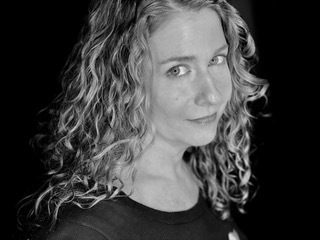 Rebecca Rowland
Rebecca Rowland
Choosing only five of your favourite authors. Can you list them in order 1 begin the top of your list and say how have they influenced your writing?
(most influential first) A.M. Homes: I find that when I read Homes’ stories, I am pushed to put down her book and begin writing something new. I’m not certain what it is, but there’s something about the music of her syntax that just hypnotizes and inspires me. I also love that she takes chances. The End of Alice is grotesque and offensive, but it’s also mesmerizing and transgressive in the best way possible.
Joyce Carol Oates: Like Homes, Oates is a writer who I can read a story from and feel inspired by its cadence. I also appreciate that Oates writes what I consider to be “quiet horror,” that kind of dark fiction that gets under your skin and creeps you out without terrifying you. I aspire to do that kind of work.
Flannery O’Connor: O’Connor didn’t set out to write gothic horror, per se. She wanted to show people the salvation of goodness by contrasting it with the horrors of society. I love that. Her characters are terribly flawed, and that’s what makes them relatable. I try to craft my characters to be the same.
Chuck Palahniuk: The thing I admire most about his writing is his wit. I’m nowhere near the kind of humorist he is, but I do hope that I knock a few witty phrases out now and then.
Stephen King: Yes, it’s trite, but I read many of his novels when I was just old enough to read them (maybe not old enough, to be honest); he was my first introduction to horror, and so he can’t help but be an influence. Now, as an adult, what I appreciate most about his work is his ability to craft the Everyman character. Like O’Connor’s, his characters are people like you and me.
Were any of your characters inspired by real people?
I’d say about half of the characters I grow begin as seeds of people I know, but I am very careful not to be libelous or to rely too much on the personality and physical traits of specific individuals. I think it comes off as vindictive when a writer does that. Although I have certainly channeled my irritations in personal relationships into fictional accounts, I try not to base a story around them.
What did you learn when writing your book or story? In writing it, how much research did you do?
For this particular story, my only research was interviewing (more like, interrogating) a friend of mine who is a serial cheater. He gave me a lot of frank, interesting insight. Normally, however, I do quite a bit of formal research before writing a story, whether it be using maps (of a setting I want to use) or perusing medical journals. If I am going to maim, torture, or kill a character, I want it to be as realistic as possible!
Is there anything about you your readers might be surprised to find out?
Despite the innumerable ways I have killed off characters, I am a pacifist at heart. I am a vegetarian, can’t watch movies where animals are harmed, and feel such incredible guilt at killing even a spider that I often just escort it outside.

What is your work schedule like when you’re writing?
It’s tough to write when I am juggling my day job and my moonlighting work as an editor, so if I am going to write, it’s usually a marathon-type session on a weekend or holiday. I get up, workout, shower, and sit right in front of the computer all day with my phone ringer turned off. I don’t have children, so I have the luxury of being able to do that when a lot of women can’t.
Do you set yourself a daily word count?
I try to. With short stories, I shoot for a minimum of 2000 words a session, but if I’m planning to be at the screen all day, I tweak that to 5000.
What was your hardest scene to write?
Years ago, I wrote a story about a sexual sadist. I performed hours and hours of research ahead of time and had most of the story done except for the scenes featuring torture. I wasn’t avoiding them because of a trigger or not knowing what I wanted to write: I knew where I wanted the story to go, and I also believed the scenes were essential to the plot. What scared me was writing something that might make people think less of me, especially other women. What finally got me to sit down and write the scenes was realizing that I can’t write for other people. I have to write for me. If something leaves a bad taste in a reader’s mouth, or a reader flat-out hates a story, that’s unfortunate, but it’s what I wanted to create. I know that not all of what I write will or should be published. Anyone who believes that about their writing is delusional. Even Stephen King has discards. But that doesn’t mean those stories should never be written. Dancers don’t dance only when someone is watching, and writers should write even if no one is reading.
Rebecca Rowland wrote the title story: “The One That Got Away”
Thank you so much for joining me in the tearoom, Rebecca.
If you would like to know more about about Rebecca’s books and writings please check out the links below.
Links: RowlandBooks.com, follow her on Instagram @Rebecca_Rowland_books
If you want to find out more about Clubhouse Members’ Books, don’t forget to check out the Clubhouse Bookshops, too.
January 9, 2021
Clubhouse Guest’s Chat: Lucy Rose
Welcome to Clubhouse Chat page. Those of you who are not a member won’t be aware that the location of the Clubhouse is shrouded in mystery. The only way to visit it is via membership or an invite to the tearoom. Every few days, I’ll be sharing a conversation with all sorts of writers and authors at different levels of their writing careers. Over tea and cakes, or maybe a glass of something stronger, I shall be chatting with my guest about their work in progress, or latest book release.

Today, I’m chatting to the horror writer, Lucy Rose. Lucy like myself is one of the writers featured in the third volume of Women of Horror Anthology, The One that Got Away published by Kandisha Press

Please may I welcome you, Lucy to the tearoom. As always my first question to my guests is what would you like to drink?
Thank you for the invite to your lovely tearoom, Paula. The lift in was rather amazing. I’ve never traveled in a car with blacked out windows before. Oh, could I have tea please?
I’m so glad you weren’t put off by our driver, Lucy. Let’s start by asking you when you first begun your writing journey, what drew you to your chosen genre?
I found horror a few years after I started writing. I think that is because, for a while, I really hated writing about myself and my own personal traumas. Horror seemed frightening because it exposed a part of myself that I wasn’t ready to share. I found that, as soon as I faced my traumas, horror was no longer frightening – it was cathartic.
Tell us a little about latest writing project. Is it a new idea, or one you have been mulling over for some time?
I feel so lucky to be working on several really exciting projects at the moment, however, of all my projects, I am really excited about my manuscript. Sometimes, in writing, I can hide very easily behind the words, but with this story, there was nowhere to hide and I can’t believe how much it’s forced me to grow as a writer. I’m really excited about it and I hope to query later in 2021.
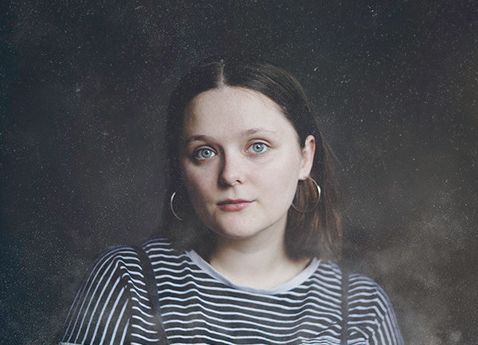 Lucy Rose
Lucy Rose
Choosing only five of your favourite authors. Can you list them in order 1 begin the top of your list and say how have they influenced your writing?
SHIRLEY JACKSON is and always will be my number one. She was the first writer who, I felt, understood the world the way I did. Reading her work became a religious experience that guided me through the terror and conflict I was experiencing in my own life. She taught me to write honestly – even if the end result looked ugly or strange. VIRGINIA WOOLF has an incredible voice. She is both delicate and tough. Her writing is a constant contradiction, but in a way that is desperate and emotional. I learned from Woolf to write what my instincts were telling me – even if it deviates from what people expect of you. CARMEN MARIA MACHADO has a stunning way of writing something that packs a punch, but using a simple and stripped back approach. Through stripping back the words, the emotion is direct. ANN RADCLIFFE – One of the founding mothers of Gothic. She was a pioneer in her own right and a wonderful writer. I admire her so much because she inspired what was to come in the gothic genre. MARY SHELLEY is a writer who has influenced me because of how she incorporated her own life experiences into her story through symbolism and thematics. She is clever and quick, and her commentary on her own traumas was critical for the gothic terror in her work.
When reading your work through do you ever find that your daily mood swings are reflected in your writing?
Oh my, yes, absolutely. My life dictates everything that goes on the page. It’s a written ledger of all the things I have felt and feared.
What did you learn when writing your book? In writing it, how much research did you do?
All the research! And all the learning! My filmmaking career has always had a heavy focus on historical drama, so I have several really intense spreadsheets of historical data that contain all sorts of random goodies for when writing anything historical. Outside of research, on a more personal note, I learned what my creative voice is and how to wield it. That has been a career-altering experience – it’s almost as though I finally understand how to speak.
Did you uncover things about yourself while writing your books (or stories, play, poem) whether that be a long forgotten memory, a positive experience etc.
Haha, lots of buried trauma I think. There was a point I had to stop writing my book because I was being so triggered by the content. In those situations, hang tight, rest up and return to writing only when you are ready. Down time is not a bad thing, and it doesn’t make you a bad writer. It makes you someone who cares about personal wellbeing.
Do you set yourself a daily word count?
Only while I am working on a big or ambitious project. I am a firm believer that we all need time off to dream and rest and recharge, but while I am working on something I know will be an undertaking, I write anywhere between 5k and 9k words a day. I make sure that my time off is extremely relaxed because when I work, it’s intense, it’s long hours and it’s a lot of brain power.
How many hours in a day do you write?
If the project is ambitious or large, I usually write for 8-10 straight hours, and then I rest and do freelance work in the evenings and grab a few hours sleep after. Tiring, but worth it. When the project is smaller, it’s whatever time I can grab – while I’m eating breakfast in the morning, while I’m on my lunch or just before bed.
How do you select the names of your characters? Do you know everything about them before you start writing their story?
I like to view my characters as people who already exist – it is my job to get to know them rather than create them. I spend many months learning who they are and asking questions. It’s less about keeping lists about things they like and dislike and more about meditation and practicing writing them. I let the characters consume me and I let them speak to me through the writing. They’ll let me know if they don’t like what I am putting on the page. They always do.
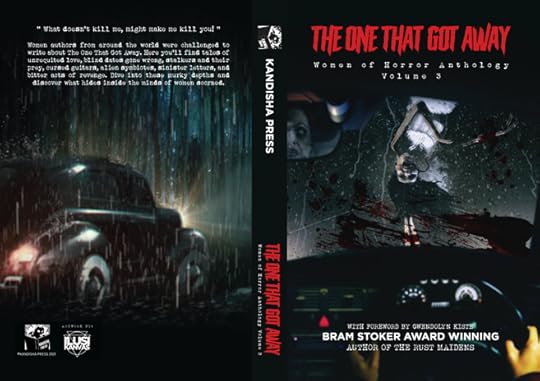
What was your hardest scene to write?
For THE LADY CROW featured in THE ONE THAT GOT AWAY (Kandisha Press), I think the most troublesome part to write was the detail – especially towards the end when there is a scene featuring gore. Usually, I gravitate away from gore because I’ve encountered so many pieces or writing where it is there for the sake of being there. When it is written badly, it can be really hammy and not at all scary. I wanted to make sure I was wording the detail correctly and in a way that sent a chill down the reader’s spine – so I spent a few weeks workshopping just those short 800/900 words with four different writing groups.
Thank you so much for joining me today, Lucy. Our driver, Brutus will be happy to run you home, when you’re ready to leave.
For more information about Lucy’s writing and books click on the link below.
Social Media: @LucyRoseCreates www.lucyrosecreative.co.uk
If you want to find out more about Clubhouse Members’ Books, don’t forget to check out the Clubhouse Bookshops, too.
January 7, 2021
Clubhouse Guest’s Chat: Marsheila Rockwell
Welcome to Clubhouse Chat page. Those of you who are not a member won’t be aware that the location of the Clubhouse is shrouded in mystery. The only way to visit it is via membership or an invite to the tearoom. Every few days, I’ll be sharing a conversation with all sorts of writers and authors at different levels of their writing careers. Over tea and cakes, or maybe a glass of something stronger, I shall be chatting with my guest about their work in progress, or latest book release.
 Photo by cottonbro on Pexels.com
Photo by cottonbro on Pexels.comToday, I’m chatting to the horror writer, Marsheila Rockwell. Marsheila, like myself is one of the writers featured in the third volume of Women of Horror Anthology, The One that Got Away published by Kandisha Press
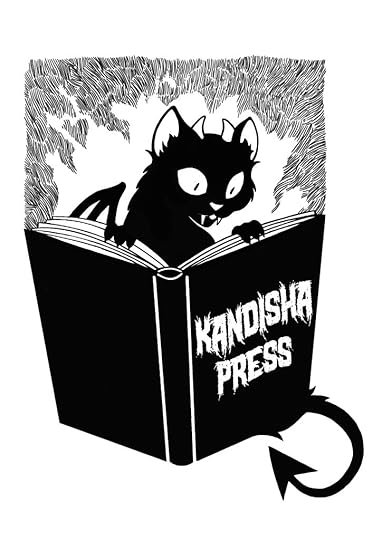
Allow me to welcome you to the tearoom, Marsheila. My first question to all my guests is what would you like to drink?
Thank you, Paula for your invite. I’m an iced chai latte, light on the ice, kind of girl.
Right, now we have our refreshments my first question about your writing is what writing elements do you think are your strongest points, and what would you like to do better?
I’ve been told I’m good at dialogue – someone once used my story, “The Short Bus,” as an example of good dialogue in a writing class they were teaching. Of course, thanks to my ever-present brain fog, I can’t remember who or where, so I could have imagined it. Wouldn’t be the first time, LOL. I feel like plotting is a weak area for me – I tend to think very linearly, and weaving in subplots is always a challenge. Luckily my husband, author Jeff Mariotte, is great at plotting, so he can usually spot holes and give me suggestions on how to fill them.
How many unfinished projects do you have on your computer?


